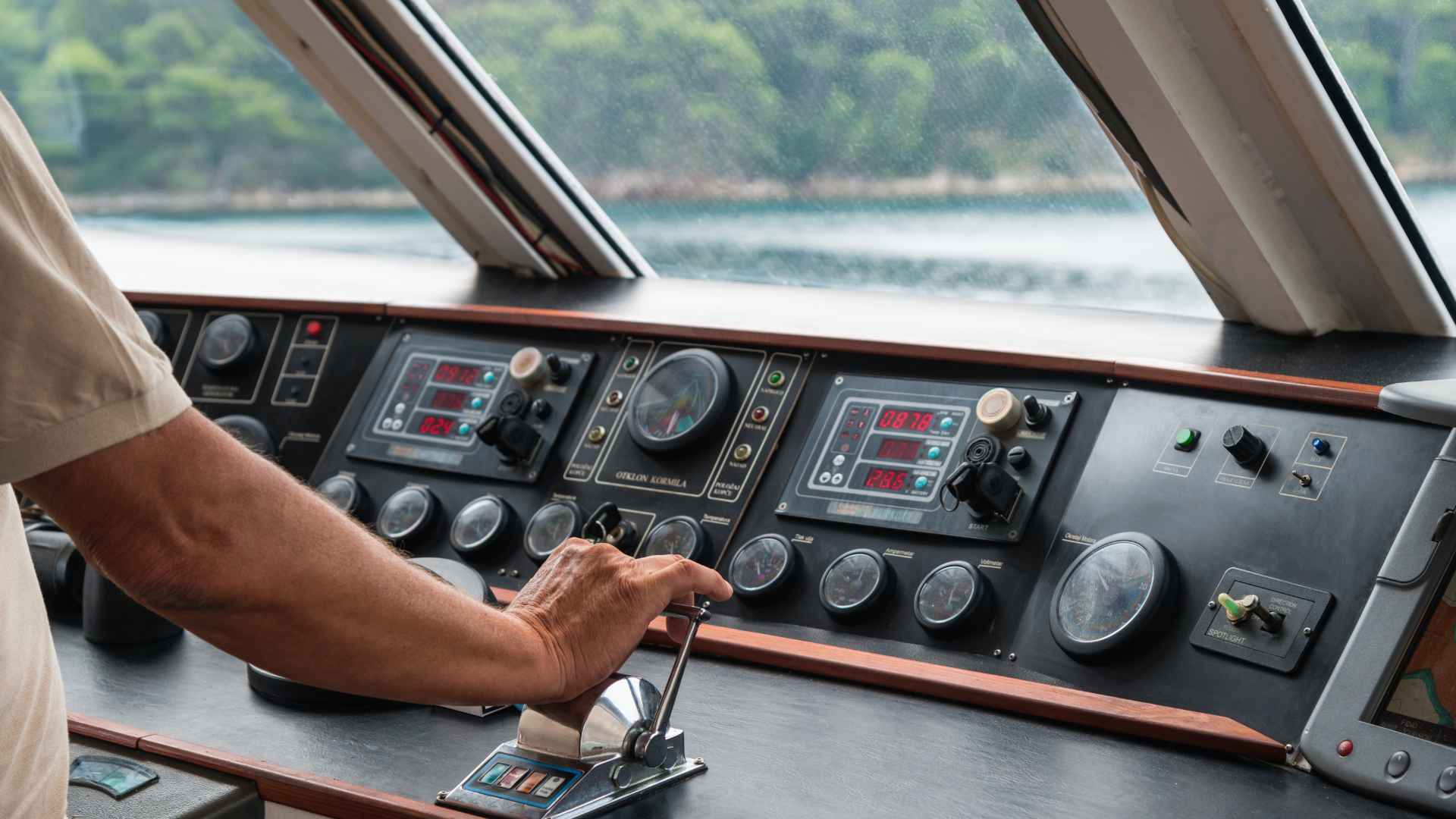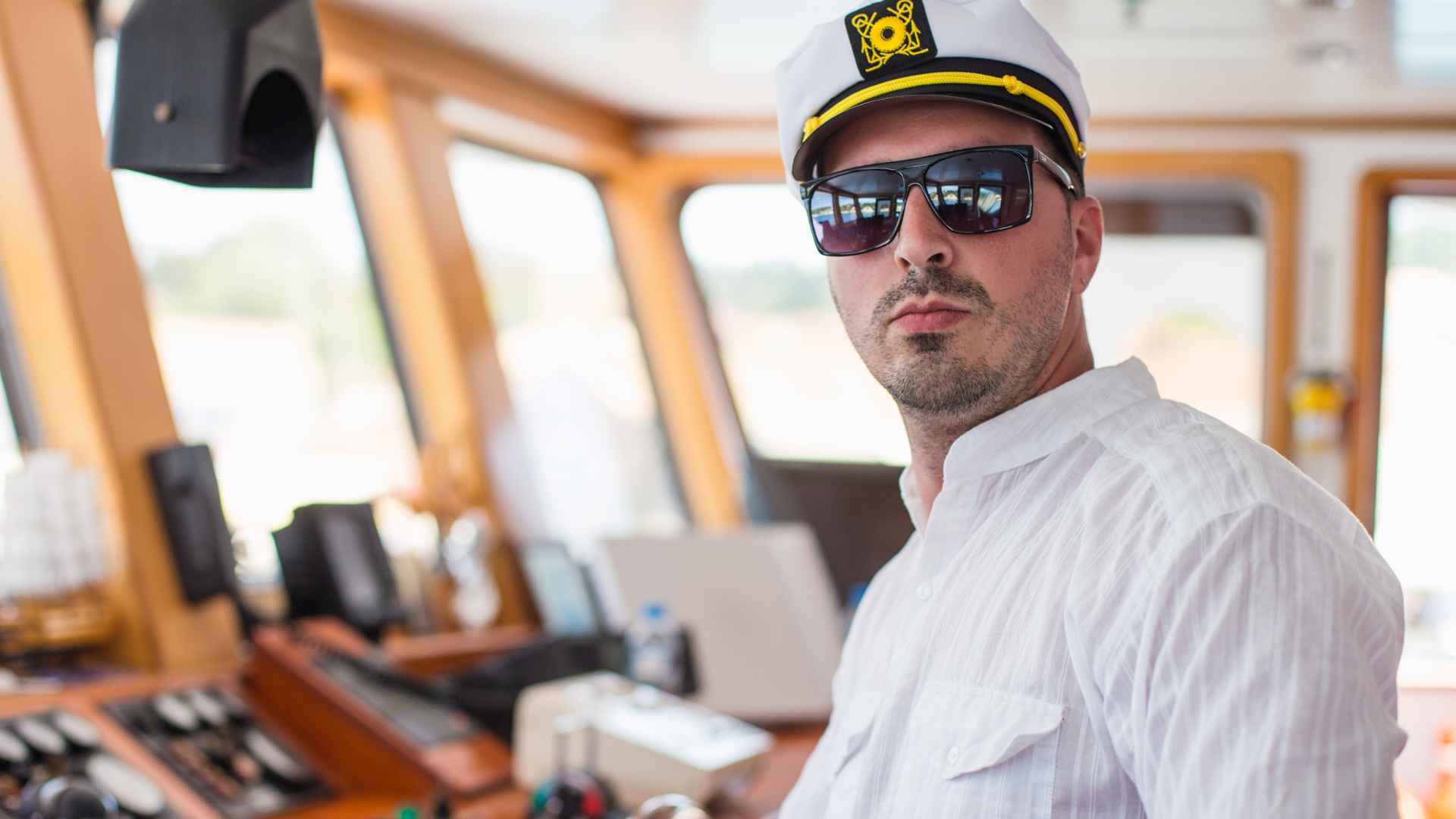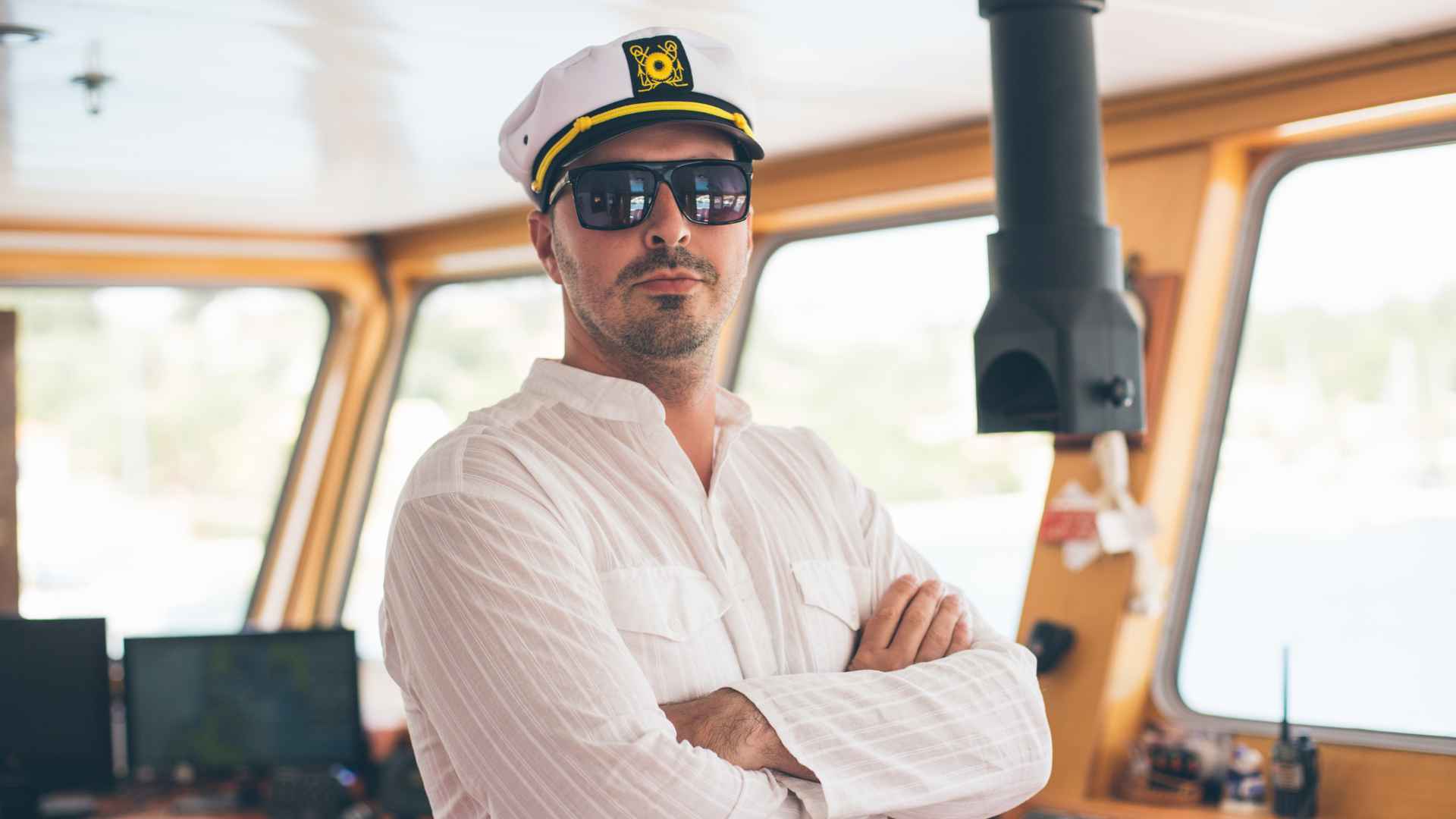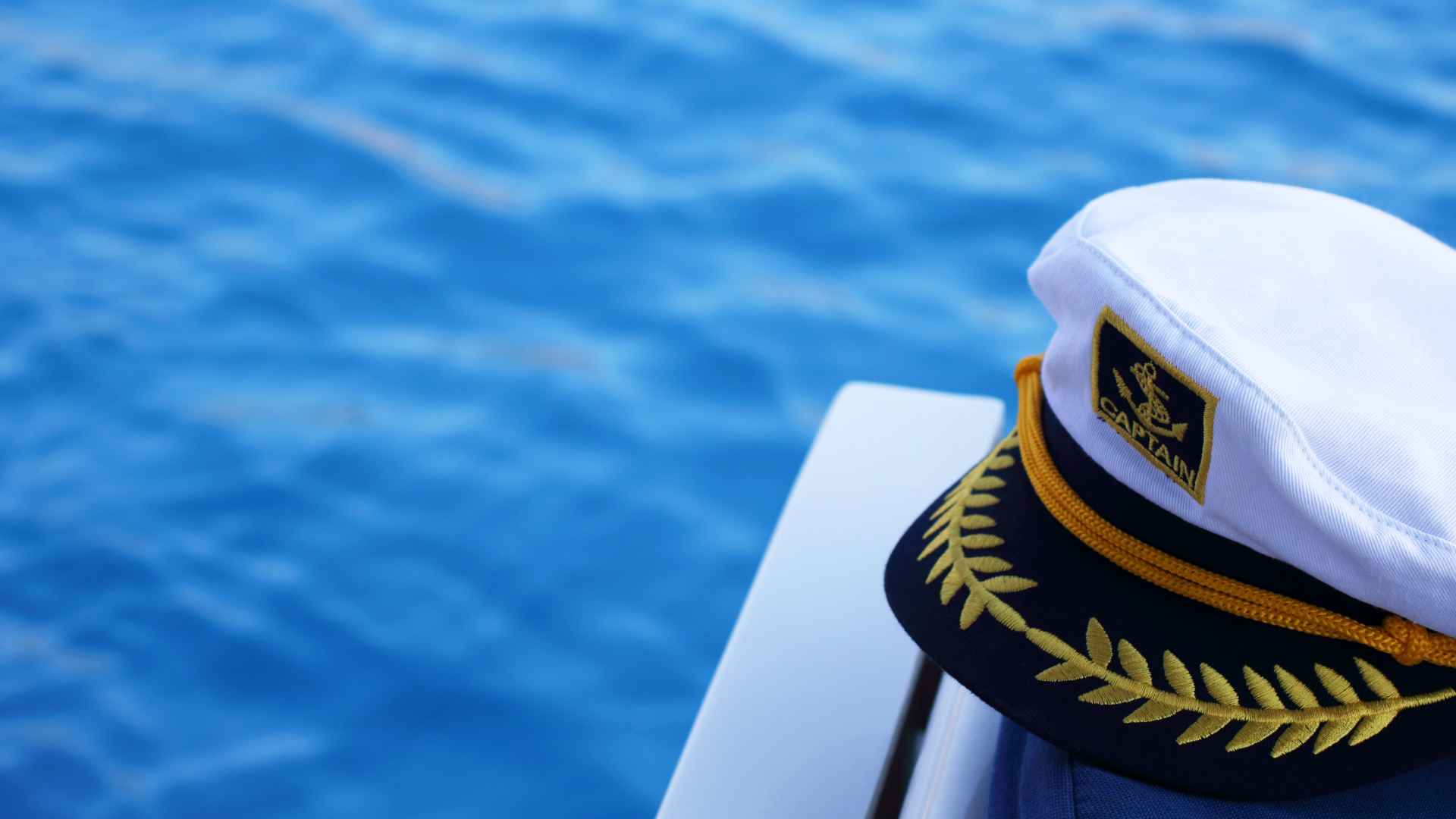How to Become a Yacht Captain? Step-By-Step Guide
Setting sail on the high seas as a yacht captain is a dream that captivates the hearts of many. The allure of commanding a vessel, exploring breathtaking destinations, and living a life intertwined with the ocean’s vastness is undeniably enticing. However, this coveted role comes with great responsibility and requires a unique set of skills and qualifications.
In this article, we embark on a journey to unravel the path of becoming a yacht captain. We will delve into the responsibilities that come with this esteemed position and the skills needed to excel in the role. From mastering navigation and seamanship to leading a crew and ensuring the safety of all on board, the role of a yacht captain demands a comprehensive understanding of both the art and science of sailing.
While the journey to becoming a yacht captain may be challenging, it is a rewarding pursuit for those who possess a deep love for the sea and a desire for adventure. Whether you aspire to captain luxury superyachts or explore remote corners of the world on expedition vessels, this article will serve as a compass, guiding you through the necessary steps and providing insights into the world of yacht captains.
So, hoist the sails, secure the lines, and join us on this voyage as we explore the path to becoming a yacht captain and the exciting possibilities that await those who choose to navigate the oceans as masters of their own destiny.
Understand the Role of a Yacht Captain:

What are the primary responsibilities of a yacht captain?
The primary responsibilities of a yacht captain involve the overall operation and management of a yacht. Here are some key areas of responsibility:
- Vessel Navigation: The captain is responsible for safely navigating the yacht, ensuring it follows maritime regulations and adheres to navigation rules. This includes charting courses, monitoring weather conditions, and operating navigation equipment.
- Crew Management: The captain oversees the crew and is responsible for their training, supervision, and performance. They assign duties and delegate responsibilities to ensure smooth operations on board. Effective crew management involves fostering teamwork, promoting a positive work environment, and addressing any issues that may arise.
- Guest Safety: The safety of passengers and guests is a top priority for a yacht captain. They ensure that all safety protocols and procedures are in place and followed diligently. This includes conducting safety briefings, maintaining emergency equipment, and implementing appropriate security measures.
- Maintenance Oversight: The captain is responsible for the overall maintenance and upkeep of the yacht. They oversee routine maintenance tasks, coordinate repairs and inspections, and ensure that the vessel meets all safety and regulatory requirements. This includes managing budgets, inventory, and working closely with engineers and technical staff.
Effective Communication, Leadership, and Problem-Solving Skills:
Being a yacht captain requires strong communication, leadership, and problem-solving skills due to the nature of the role:
- Communication: The captain must effectively communicate with the crew, guests, and other stakeholders. Clear communication ensures smooth operations, fosters teamwork, and promotes safety on board.
- Leadership: A captain is expected to lead by example, inspire the crew, and make informed decisions in high-pressure situations. They must possess strong leadership skills to guide the team and manage various challenges that may arise.
- Problem-Solving: Yacht captains often face unexpected situations or emergencies. They need to think critically, make quick decisions, and find solutions to ensure the safety of everyone on board. Problem-solving skills are crucial for handling unforeseen circumstances effectively.
Necessary licenses and certifications required to become a yacht captain
To become a yacht captain, individuals must acquire the necessary licenses and certifications. The specific requirements may vary depending on the country and the type of vessel. Here is a general overview:
- OUPV (Operator of Uninspected Passenger Vessels) License: This license, also known as a six-pack license, is required for operating uninspected vessels carrying up to six paying passengers. It allows captains to operate charter boats, fishing boats, and small passenger vessels.
- Master License: The Master License allows captains to operate larger vessels that carry more passengers. There are different levels of Master licenses, such as Master 25, 50, 100, 200, and 500. The number denotes the maximum gross tonnage of the vessel.
Eligibility criteria for these licenses typically include:
Meeting the minimum age requirement (usually 18 years or older).
- Accumulating a specific number of sea service days, which may vary based on the license level.
- Passing a written examination that tests knowledge of navigation, safety, and other relevant topics.
- Meeting medical fitness requirements.
- Providing character references and completing an application process.
It’s important to note that these requirements can vary between countries and regions. It’s recommended to consult the maritime authority or governing body in the relevant jurisdiction to get accurate and up-to-date information on licensing and certification requirements for yacht captains.
Gain Experience and Build a Skill Set:

Importance of gaining foundational boating knowledge
Gaining foundational boating knowledge is essential for aspiring yacht captains. It provides a solid understanding of boating principles and sets the groundwork for further development. Here are some key points to consider:
- Understanding Navigation Rules: Familiarize yourself with the rules of navigation, including buoyage systems, right of way, and international maritime regulations. This knowledge ensures safe navigation and promotes responsible boating practices.
- Weather Patterns and Conditions: Learn about weather patterns, tides, and their impact on boating. Understanding weather forecasts and how to interpret them is crucial for planning safe voyages and avoiding hazardous conditions.
- Basic Boat Handling: Acquire basic boat handling skills, including steering, docking, and maneuvering in different environments. This knowledge forms the foundation for operating and controlling a vessel effectively.
There are various resources and courses available to help gain this knowledge. Consider taking boating safety courses offered by organizations such as the United States Power Squadrons (USPS), the U.S. Coast Guard Auxiliary, or local boating associations. Additionally, introductory sailing lessons or basic boating courses can provide valuable insights into navigation and boat handling.
Value of gaining hands-on experience by working as a deckhand or crew member on a yacht
Gaining hands-on experience by working as a deckhand or crew member on a yacht is invaluable for aspiring yacht captains. This experience provides insights into yacht operations, teamwork, and the daily responsibilities involved. Here are a few benefits:
- Exposure to Yacht Operations: Working on a yacht allows you to observe and participate in various tasks related to vessel maintenance, navigation, safety protocols, and guest services. You’ll gain practical knowledge and understand the dynamics of running a yacht.
- Teamwork and Communication Skills: Collaborating with other crew members fosters teamwork and effective communication. Learning to work efficiently as part of a team is crucial for a yacht captain, as they need to lead and coordinate the crew effectively.
- Networking Opportunities: Building connections within the yachting industry can lead to future job opportunities and career advancement. Engage with experienced professionals and seek mentorship to enhance your learning and growth.
Benefits of enrolling in professional training programs and maritime academies
Enrolling in professional training programs and maritime academies can significantly enhance your knowledge and credibility as a yacht captain. Here are a few options to consider:
- STCW (Standards of Training, Certification, and Watchkeeping): The STCW training is an internationally recognized set of standards that provide essential safety and operational training for seafarers. This certification covers areas such as firefighting, personal survival techniques, first aid, and maritime security.
- RYA (Royal Yachting Association) Qualifications: The RYA offers a range of qualifications that are widely recognized in the yachting industry. These certifications cover areas such as navigation, radar operation, diesel engine maintenance, and yachtmaster training.
- Maritime Academies: Consider attending a maritime academy that offers specialized training for yacht captains. These institutions provide comprehensive education and practical experience, preparing you for various challenges of the role.
Investing in professional training demonstrates your commitment to the industry and enhances your skill set, making you a more competitive candidate for yacht captain positions.
Remember, gaining experience and building a skill set takes time and dedication. Embrace opportunities to learn, be proactive in seeking hands-on experience, and continually update your knowledge through courses and certifications.
Obtain the Required Licenses and Certifications:

Familiarize yourself with licensing authorities:
To obtain the necessary licenses and certifications as a yacht captain, it’s important to familiarize yourself with the licensing authorities and organizations that oversee the process. The specific authorities may vary depending on the country or region. Here are a couple of examples:
- US Coast Guard: In the United States, the US Coast Guard is responsible for issuing licenses and certifications for yacht captains. They have different licensing levels, including OUPV (Operator of Uninspected Passenger Vessels) and Master licenses.
- Maritime and Coastguard Agency (MCA): The MCA is the licensing authority in the United Kingdom and is recognized internationally. They offer a range of certifications, including the Officer of the Watch (Yacht <3000 GT) and Master (Yachts) certificates.
Each licensing authority has specific requirements and application processes. It’s important to thoroughly research and understand the guidelines and regulations set forth by the respective authority in your jurisdiction.
Complete the required sea time and training:
Accruing the necessary sea time and training is a crucial step in obtaining your yacht captain licenses. The requirements may vary depending on the license level you are pursuing. Here are some key points to consider:
- Sea Time: Licensing authorities typically require a specific number of sea service days, which may include both qualifying sea service and additional time as an observer. The required sea time can vary depending on the license level and may involve different vessel sizes and types.
- Additional Training: In addition to sea time, you may need to complete additional training courses to meet the requirements. This can include training in radar operation, celestial navigation, firefighting, medical certifications like Basic First Aid or Medical Care, and other relevant topics. These courses enhance your skills and knowledge as a yacht captain.
It’s essential to maintain accurate records of your sea time and training, including the vessel names, dates, and duties performed. This documentation will be required during the application process.
Prepare for licensing examinations:
Licensing examinations assess your knowledge and competency as a yacht captain. Here are some tips to help you prepare:
- Study Relevant Regulations and Rules: Familiarize yourself with relevant regulations, such as navigation rules, safety procedures, and maritime laws specific to your jurisdiction. Study the applicable licensing guides or handbooks provided by the licensing authority.
- Navigation and Safety Procedures: Review navigation techniques, chart plotting, understanding aids to navigation, and collision regulations. Ensure you have a strong understanding of safety procedures, emergency protocols, and international maritime conventions.
- Preparatory Courses and Study Materials: Consider enrolling in preparatory courses offered by recognized training centers or maritime academies. These courses are designed to help you prepare for the licensing examinations and cover the necessary topics in depth. Additionally, study materials such as textbooks, online resources, and practice exams can aid your preparation.
Practice solving sample questions and scenarios to familiarize yourself with the format and structure of the licensing examinations.
Remember to check the specific requirements and recommendations from the licensing authority to ensure you are adequately prepared for the examinations.
By familiarizing yourself with the licensing authorities, completing the required sea time and training, and adequately preparing for the examinations, you can increase your chances of successfully obtaining the necessary licenses and certifications to become a yacht captain.
Advance Your Career as a Yacht Captain:

Network and establish connections:
Networking within the yachting industry is crucial for advancing your career as a yacht captain. Building relationships and establishing connections can lead to new opportunities and career growth. Here are some key points to consider:
- Industry Events: Attend industry events, such as yacht shows, maritime conferences, or trade fairs. These events bring together professionals from the yachting industry and provide opportunities to network, learn about new developments, and establish connections with yacht owners, brokers, and industry leaders.
- Professional Associations: Join professional associations and organizations related to yachting and maritime industries. These associations offer networking events, educational resources, and career support. Examples include the Professional Yachting Association (PYA), International Superyacht Society (ISS), or local yachting associations.
- Yacht Brokers and Crew Agencies: Build relationships with yacht brokers and crew agencies. Yacht brokers can connect you with potential employers and job opportunities, while crew agencies can assist with crew placement and career guidance. Stay in touch with them, provide updates on your experience and qualifications, and maintain a professional rapport.
Networking allows you to stay connected with industry professionals, increase your visibility, and access a broader range of opportunities.
Continue learning and professional development:
Continuous learning and professional development are essential for growth and advancement as a yacht captain. Here are some key aspects to consider:
- Stay Updated on Industry Advancements: The yachting industry is constantly evolving, with new technologies, regulations, and best practices emerging. Stay informed about industry trends, updates in safety protocols, navigation technologies, and regulatory changes. Read industry publications, follow reputable online sources, and attend relevant training sessions or workshops.
- Advanced Training and Specialized Certifications: Consider pursuing advanced training courses and specialized certifications to enhance your knowledge and skill set. These can include courses on advanced navigation techniques, superyacht operations, crisis management, leadership development, or specific technical skills like engine maintenance or electrical systems. These additional qualifications make you more competitive in the job market and broaden your career prospects.
- Professional Development Programs: Some organizations and institutions offer professional development programs tailored for yacht captains. These programs focus on leadership skills, management strategies, and industry-specific knowledge. Participating in such programs can enhance your leadership abilities, expand your network, and open doors to new opportunities.
Continuously investing in your learning and professional development demonstrates your commitment to excellence and positions you as a knowledgeable and competent yacht captain.
By networking within the industry, attending industry events, joining professional associations, and staying updated through continuous learning, you can advance your career, establish valuable connections, and position yourself for further growth as a yacht captain.
Watch What it takes to become a superyacht captain! | Video
Top 5 FAQs and answers related to How to Become a Yacht Captain
What qualifications do I need to become a yacht captain?
How do I gain the required sea time as a yacht captain?
Where can I find training courses for aspiring yacht captains?
How long does it take to become a yacht captain?
Is it necessary to have sailing experience to become a yacht captain?
Conclusion:

Becoming a yacht captain involves several key steps and considerations. Here’s a summary of the article’s main points:
- Gain Experience: Start by acquiring foundational boating knowledge, understanding navigation rules, weather patterns, and basic boat handling. Seek opportunities to work as a deckhand or crew member on a yacht to gain hands-on experience and learn about yacht operations and teamwork.
- Obtain Licenses and Certifications: Familiarize yourself with the licensing authorities relevant to your location, such as the US Coast Guard or Maritime and Coastguard Agency (MCA). Understand the specific requirements and application processes for obtaining the necessary licenses, which may involve sea time, training courses, and passing examinations.
- Focus on Professional Development: Continuously learn and stay updated on industry advancements. Consider advanced training, specialized certifications, and professional development programs to enhance your skills and knowledge as a yacht captain. This demonstrates your commitment to excellence and broadens your career prospects.
In conclusion, embarking on the journey to become a yacht captain requires dedication, practical experience, and a commitment to ongoing learning. By gaining experience, obtaining the required licenses, and focusing on professional development, you can position yourself for a rewarding career as a yacht captain. The open seas await, offering exciting adventures and the opportunity to lead a skilled crew while navigating luxurious yachts. Start your journey today and set sail towards an incredible future as a yacht captain.
Share How to Become a Yacht Captain? Step-By-Step Guide with your friends and Leave a comment below with your thoughts.
Read How to Build a Casting Deck in an Aluminum Boat in 6 Steps? until we meet in the next article.





